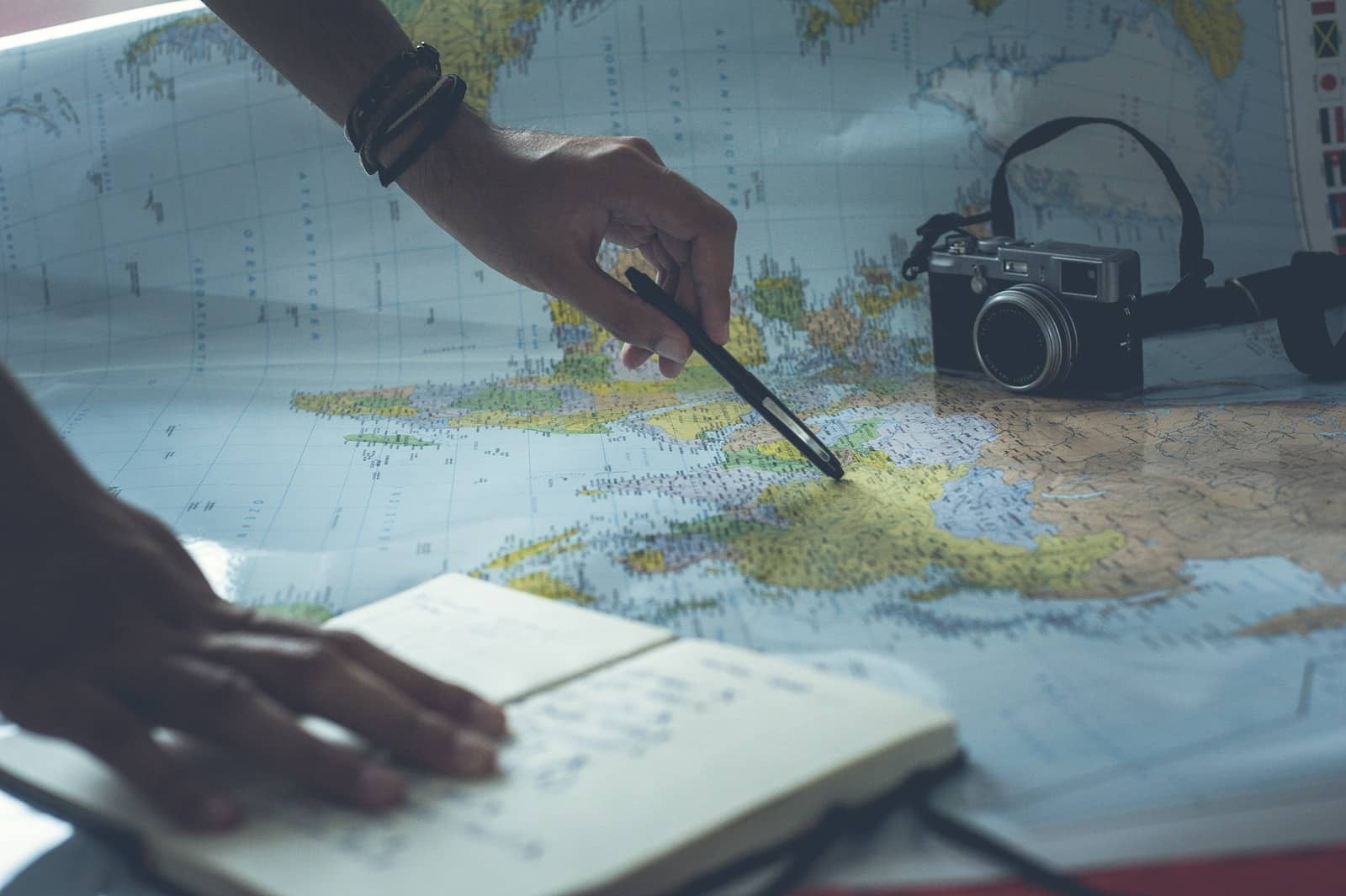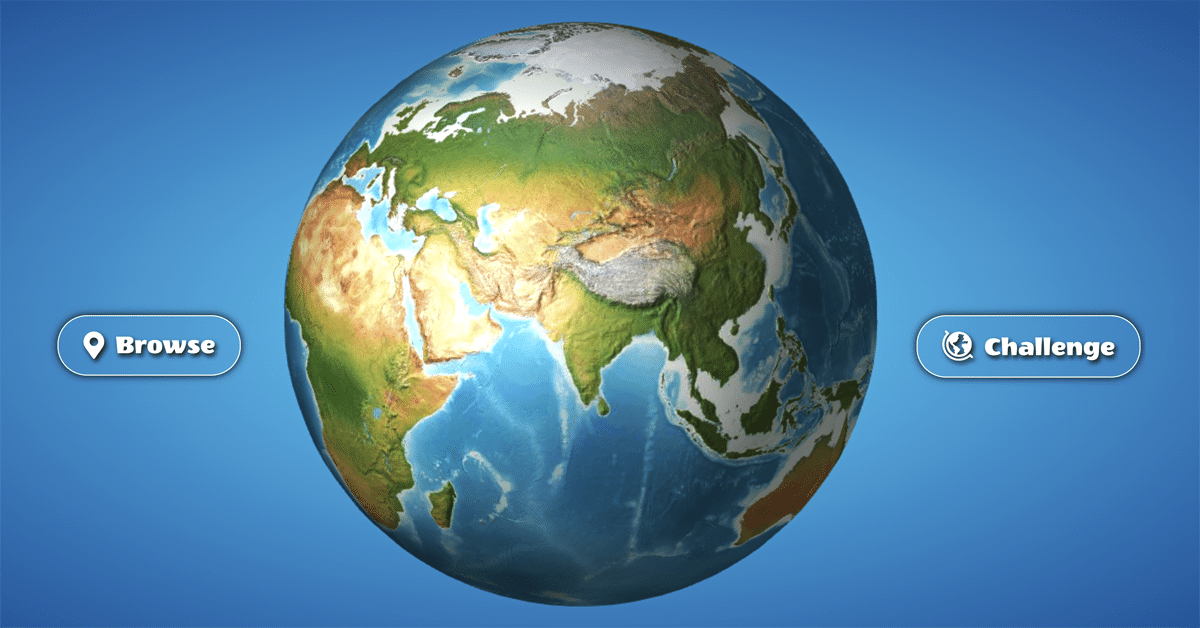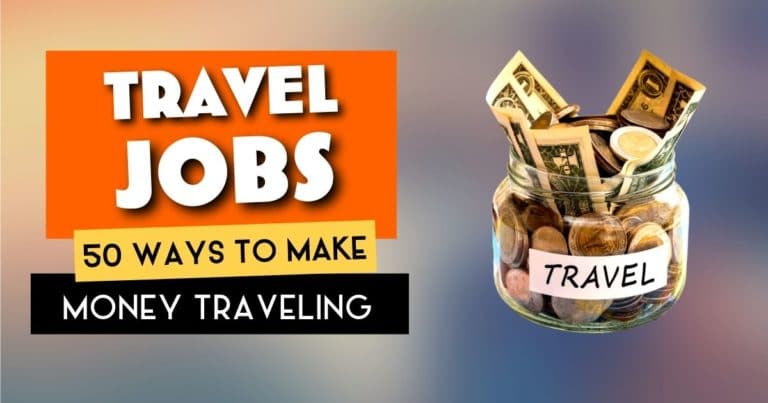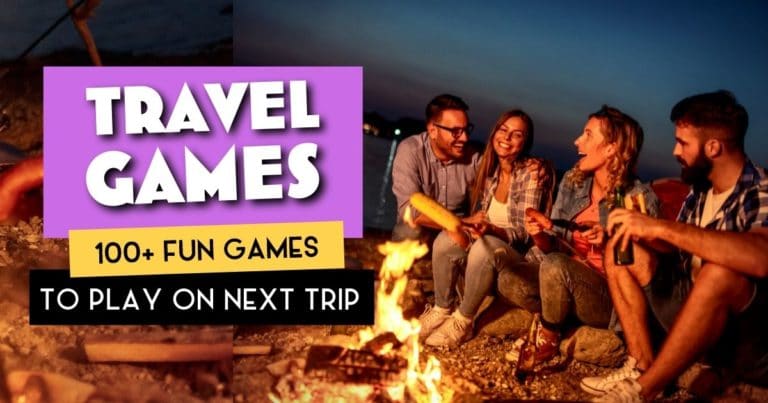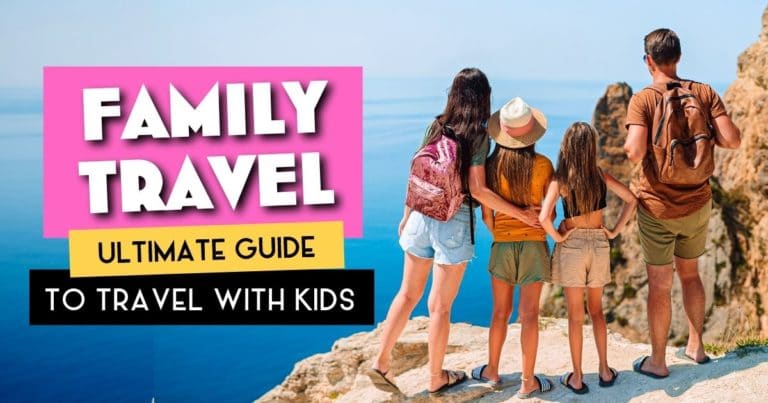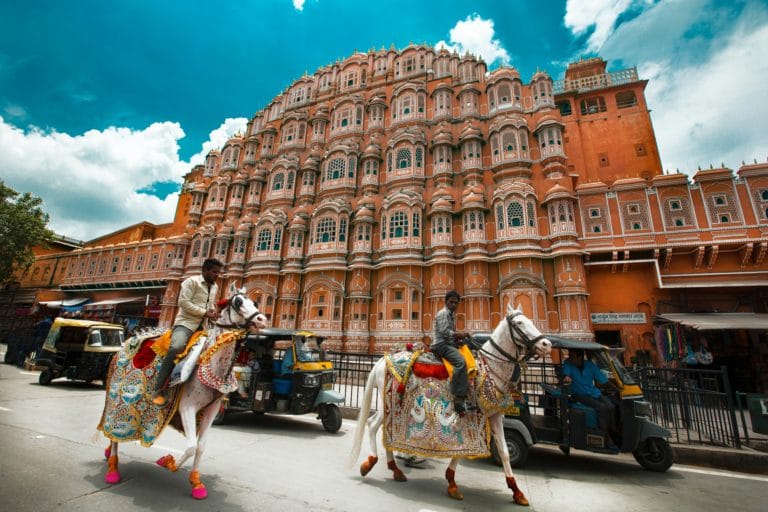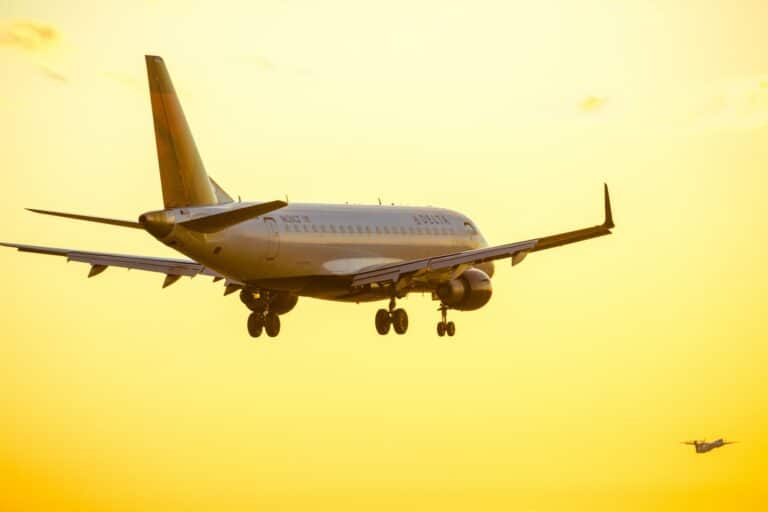Follow this practical guide step by step to plan your entire journey from start to finish, using the best trip planning tools and resources.
Step 1: Choose Your Destination
This step may seem obvious; maybe you already know exactly where you want to travel and that’s why you’re planning this trip in the first place.
But if you are not sure where you want to go or how to narrow down your huge bucket list to just one destination, Go through each of the following questions one by one. By answering these questions, you should have a clearer idea of where and when you want to go on your next trip.
How much is your budget?
Before you even start planning a trip, you need to take a good look at your finances and evaluate how much money you have to spend on your adventure. This will determine a lot of your future steps, including where you can travel and for how long.
Well don’t get demoralized because if your are willing to shed some luxury then it doesn’t matter where you go, you can travel cheap. We have made a comprehensive budget guide just for this. Also you can enroll for various travel jobs.
Any destination can be put within three range of budget as follows:
Low Budget Destinations
[Approx Daily Budget: $20-$30]
If you’re looking for the best backpacking destinations where you can get cheap food, drinks, accommodation and experiences, then Southeast Asia is always a good start.
Vietnam, Cambodia, India, Nepal, Indonesia, Guatemala, Thailand, Laos, Nicaragua, Philippines, Sri Lanka, Bosnia.
Mid-Range Destinations
[Approx Daily Budget: $30-$60]
Most of the travelers would probably put themselves in this category. Two great continents that fall within the mid-range destinations are South America and Europe.
Canada, Croatia, El Salvador, Estonia, Greece, Latvia, Lithuania, Malta, Mexico, Morocco, Poland, Portugal, Scotland.
Expensive Destinations
[Approx Daily Budget: $60-$100]
Finally, here’s a list of countries that would fall under the expensive category.
Austria, Finland, France, Germany, Iceland, Ireland, Italy, Netherlands, Norway, Spain, Sweden.
How to research the costs of any destination?
1. Google prices for specific activities to do, transportation and accommodation.
2. Check out our travel guides for an overall idea.
3. Check out the cost for booking flights and accommodation.
You don’t need to do more than that. There’s so much information on the web that if you go down the rabbit hole of over-planning, you’ll get lost and confused by the plethora of information. Stick to those three things and you’ll be set!
What is the length of your trip?
Are you going away for few days? weeks? months?
In general, the further away you’re traveling, the longer your trip should be. There is no point taking 20 hours flight and spending just few days at your destination.
You’ll likely want to explore the new places for few weeks at the minimum in order for the travel time and cost to be worth it.
It’s true that you’ll likely never see everything a country has to offer, no matter how much time you have. But if you’re visiting a large destination, or one that really fascinates you on a deep level, it’s smart to budget more time for it.
A trip with lots of urban areas will require more time for sightseeing which will result in a longer duration. Whereas a trip to a tropical beach town would not involve much sightseeing and therefore, the time frame could be shorter.
A road trip would stretch the duration of a trip whereas, a trip planned with flight could be a little shorter.
It is advisable to keep a vacant day while planning your trip that exceed more than a week. This gives a buffer to things like delay in flight or train, traffic jams, weather hold-ups, or a change-of-heart to extend stay at a particular destination.
Who are you traveling with?
When you plan your trip, your destination choices can highly be affected by your traveling companions.
Will you be traveling solo, as a couple, with group of friends, with your pets or taking family vacations?
Traveling solo gives you the freedom to go anywhere you want. No compromising. You just go wherever the wind takes you! However, it means you have to do all the planning yourself — which can seem daunting if you’re new to trip planning.
Whereas, If you are going with someone, sit down with other members and discuss your ideas and interests. Memorable trips are those where each member gets to experience something they love. Don’t leave it to one person to make all the decisions as it may turn into disappointment later.
What kind of experiences do you like?
To have a memorable trip, choose a destination that allows you to have experiences you enjoy.
Do you like:
- Relaxation or adventure
- Beaches or mountains
- Summer or winter
- Cities or countryside
- Resorts or Hostels
- Road trips or Trains
- Festivals and culture
- Shopping
- Food experiences
- Luxury, mid-range, or budget
- Would just be visiting attractions or indulge in high-octane adventures?
- and so on….
By answering these types of questions you can narrow down your list of where you want to go for your dream trip!
What are the Visa requirements?
Depending upon your home country and your destination country, the visa requirements will change. Find out whether you need to obtain visa for the country you are traveling to? Can you get a visa online, visa on arrival, or do you need to get it in your home country? Are you required to have any vaccinations?
How to know the visa requirements?
When are you going to travel?
This will be determined by a number of things, but mostly your schedule. Anyways here are few of the factors to consider before deciding when to go.
What will the weather be like?
Will it be winter or the rainy season? How about when it’s hot and muggy?
Is it peak-season, low-season or off-season?
Do some research and find out when is the peak-season, low-season and off-season for your destination.
Peak season means higher cost for accommodation and ridiculously huge lines and crowds at tourist attractions.
Likewise, if you are traveling during off-season, cost will be low but you may experience some of the businesses to be shut down?
If you are fortunate enough to be flexible in when you can take your vacation time, good for you! Ideally, we would advice to avoid peak travel periods and go for the low-season, when prices are fair and everything is open.
By the way, you can get all this info in our travel guides.
Get Travel Inspiration and Destination Ideas from our curated Mega-Lists of the Most Beautiful Places and Mind-Blowing Experiences in the World.
Feeling adventurous? Take the NEW! Travel Challenge by Travopo. Spin the 3D Globe and travel to random destination.
Step 2: Book Your Flight
Once you’re exactly sure of where you want to go and when you want to go. The question arises: how to book cheap flights? We will get to that in a minute.
Before you even start researching, here are a few tips you need to know.
Pro Tips For Booking Flights
- Super important rule: flights should ALWAYS be the first thing you book, Because flight prices and availability are much more volatile than hotel or activity.
- Cost of flight tickets depends on availability and the prices rise over time, getting the bookings done at least 3 to 6 months in advance will help you avoid extra costs on your initial budget.
- If you are flexible with dates, travel during off-season, as the prices are always the lowest.
- Return flight tickets are better value than one way tickets.
- When booking a flight, always read about the luggage included in the price so you don’t get an unpleasant surprise at the airport.
- Be aware that you can rarely cancel or change a flight unless you pay an extra fee.
How To Find Cheapest Flight Tickets?
By using Meta Search Engines.
A travel metasearch engine is a price comparison website that compares the rates from different sources across the internet, OTAs (online travel agents) or directly from service provider and shows you the best rates.
Out of few dozens out there, we will suggest you the best of the best meta search engines. All of them do almost the same thing of scanning and comparing the prices from all travel sources. The only difference is the cost.
It is evident that no single metasearch engine has been able to perfect the process of flight finding. Some are better than others on particular routes whilst others have better filtering and search options. So we advice to spent some more time on research and search on all of the following to save a considerable amount of money.
Skyscanner is the most popular and particularly strong at finding European flight routes.
KAYAK is particularly strong at finding deals for the American market.
Travopo Flight Scanner can sometimes beat all of the above sites on price by searching lesser-known travel agencies.
If you research on these three Meta Search Engines, that’s more than enough. You can be rest assured that you would find the cheapest deal on the internet.
How To Get Flight Compensation?
Did you have a delayed or canceled flight?
You can get up to $700 per passenger for flights delayed, canceled or overbooked, from the last 3 years. No matter the ticket price.
This is applicable for all airlines and countries. On top of that, there are no fees if you don’t win. All you do is give flight details and rest of the work is done by the compensation company. It takes just 2 mins to check the claim.
Which is the best site to claim flight compensation?
Air Help is the most reliable compensation service. They are the world’s largest air passenger rights organization.
– Helped over 16 million air passengers.
– Dedicated support team of over 200 claim agents.
– Can help in 17 languages.
– No win. No fees.
– Check for free in 2 mins.
Flight Compensation Rules:
Air travel laws allow passengers to seek compensation from airlines for inconveniences. However, most people don’t know their rights regarding air travel, which makes it difficult for them to file claims.
How do you know when to claim compensation?
Though the law can be complicated, we’ve simplified it for you:
– Delayed flights: If your flight arrived 3 hours or more late.
– Canceled flights: If your flight was canceled less than 14 days before it was due to depart.
– Overbooked: If you are denied boarding due to overbooking or through no fault of your own.
When will you not get compensation?
If any extraordinary circumstances were involved, such as bad weather, travel restrictions, or air traffic control strikes, then the airlines are under no obligation to pay compensation.
How much flight compensation do you get?
Flight compensation is determined mainly by the distance.
– For flights under 1,500 km, you would get about $270 to $350.
– For flights around 2,500 km, you would get about $350 to $500.
– For flights over 3,500 km, you would get about $550 to $700.
The compensation amount will differ from the standard amounts shown above. The simplest way to determine an exact amount is to check compensation online, which is quick and completely free.
What should you do if your flight is delayed or canceled?
– Hold onto your boarding pass and other travel documents.
– Inquire as to why the flight was delayed or canceled.
– Request food, drinks, and, if necessary, free transportation and accommodations.
– If your flight was canceled, request an alternate flight or a refund.
– Save all receipts for any additional expenses, such as food, clothing, and so on.
– Save all receipts for any additional expenses you may have incurred, such as food, clothing, hotels, and so on.
– Avoid signing waivers or accepting vouchers that require you to waive your right to compensation.
How long before you get your flight compensation?
Compensation processing times will vary depending on the circumstances, so patience is key. Under ideal conditions, you can usually expect to receive your refund within two to seven days. However, if there are many claims pending, wait times can increase.
Step 3: Plan Your Itinerary
Planning Things To Do
Tips for planning things to do
- It always sounds exiciting and adventurous when travel plans are made on a sudden impulse or gut feeling. However, the drawback of going on such trips is that things can go haywire because everything is so last-minute. It is wiser to have a loose itinerary planned for each day, especially when your trip time is limited. Below are things to keep in mind while planning day-wise activities.
- When planning your dream trip, what sort of things are you looking to experience? If you already have an idea of specific activities and experiences, then make a list of everything you could possibly want to do on your trip. In the next tab we have also covered (How to research and find best things to do?
- Plan transfers between destinations during the evening or night. This will provide sufficient time for sightseeing and activities, as most of them can only be enjoyed during the daytime.
- Most of the time, it is better to book activities like adventure sports, water activities, and safari rides at the destination itself to get a better price and some chance of bargaining.
- If the purpose of the trip is to relax, then keep only one or two activities in a day and take it easy during the vacation.
- In some places, certain tourist activities are closed during the off-season. Check the availability of activities before going to your destination.
How to find things to do?
Here’s a few of the best ways to find the most common things to do, as well as unique experiences and adventures.
Our travel guides are unique in the sense that, typically, when you go onto a website or blog, you get information from just a single source. Our travel guides, on the other hand, have the best curated content from across the internet in the form of YouTube videos and Wiki guide. This saves you a lot of time as you get the best tips and opinions from various experts, all in one place.
Our guides consist of local insights and inspiration from travel pros. You can watch authentic videos or read a comprehensive wiki-guide with updated info about any place in the world. We have created more than 5000+ travel guides and are adding more.
Simple searches such as “things to do in Place/Country” will bring up wealth of details you require to plan an epic trip.
It’s not long before you’ll find several travel blogs you like (as well as ours, of course) and that will help plan your next adventures.
Social Media
Simply search for any destination on your social media account.
Pinterest, Instagram, and Facebook Groups are widely used by travelers to find off-the-beaten-tracks and places.
Booking Tours and Activities
Travelers often book flights and hotels to stay ahead of their trip, but many don’t realise that they can save time – and sometimes money – by booking classic tours and activities in advance, such as walking tours, day trips, cooking classes, entry tickets, adventure rides, museums, open-excursion boats and much more.
Tours, activities and experiences can be a great addition to a trip and can help make your travels more special and exciting. You can now find tours, excursions and activities for most destinations around the world with the help of online tour booking sites.
Why book tours online?
- You will usually find the lowest price.
- You can make your decision based on numerous reviews.
- You have more security in the event of cancellation.
- You can save a lot of time by buying skip the line tickets for many attractions and go right in. Sure, the idea of waiting in line doesn’t sound so bad, but for a few minutes of work right now, you can not waste hours of your vacation standing in a line wishing you would’ve had better sense.
- It’s a great way to research common things to do and get some good ideas for your destination, even if you don’t book.
Tips to consider when booking online
- Always look through a variety of tour sites prior to making a booking, since prices may vary.
- Some websites offer discounted rates when you book multiple tours, so consider buying in bulk.
- Search for free tours and activities: most cities offer free walking tours and social activities, however, it’s customary to tip at the end.
Best booking sites for Tours and Activities
Viator is the world’s largest activities and excursion ticket website, offering everything from airport shuttle services to guided tours and skip-the-line admission tickets at attractions worldwide.
GetYourGuide offers one of the largest catalogues of tours and activities, mostly with excellent reviews. It focuses more on experiences and tours versus transportation services. The site is user-friendly, which makes it easy to find what you’re looking for.
Tiqets focuses on entrance tickets for museums, shows and attractions. You may find great deals.
Klook is the front runner in Asian bookings and offers great deals, particularly on attraction tickets. They have recently expanded into more parts of the world.
Musement has a great choice of local tours and attractions. Check their catalogue, and you may be surprised.
Booking Accommodation
Before you start booking your accommodation, go through these questions:
1) What is your Budget Range?
Determine your travel budget range from the start to have better clarity in decision-making. Low-Range vs Mid-Range vs Luxury.
Low-Range Accommodation
Expect to pay around $10-30 per night per room in hotels. Or $6–$15 per bed in hostels and homestays.
Budget accommodation typically includes a private room with a bathroom. Rooms are generally small, and the price doesn’t always include breakfast.
Budget accommodation is high quality in places like Southeast Asia. For example, you can get hotel rooms with breakfast and sometimes a swimming pool for as low as $15 a night in most parts of Asia.
Mid-Range Accommodation
Expect to pay around $25–60 per night (based on two people sharing).
Mid-range accommodation typically includes a private room of a decent size with a bathroom, and most properties will have a swimming pool.
Luxury Accommodation
Expect to pay around $50-120 per night (based on two people sharing).
Luxury accommodation typically offers lots of space with rooms, bathrooms, and living area.
The property will typically have a swimming pool, a gym, and other desirable amenities. Breakfast is typically included.
Of course, these prices will differ depending on the area you’re visiting. Asia is a lot cheaper than Europe.
The prices shown above are for Asia. To get an idea of the cost in Europe, increase the prices by approximately 30%.
2) When are you going to travel?
Figure out the Peak Season, Low-Season and Off-Season for your destination.
If you are traveling during peak season, then we recommend you book as early as possible as the price will shoot up pretty high during peak season.
Low or off-season allows you to be flexible with planning and booking, as the prices are lower for almost everything. We recommend to book for the first few days on arrival. Know the locality and get insider advice from your hotel/hostel staff as well as other travelers and use that info to plan and book accordingly.
3) How long will you be staying?
Depending on the length of your stay, you can try different accommodation styles.
If you are planning to stay in one location for a longer period of time (a couple of weeks or more), then you may consider staying in apartments or houses. They offer several benefits:
- Access to a full kitchen.
- Separate bedrooms from the living room.
- You have your own laundry.
- You can split the cost with friends or family.
- Better safety and security than hostels.
These extra facilities on an extended stay can make your trip much more enjoyable. But if it’s just a short city stay or you’re just traveling as a couple or solo, then a hostel or hotel would be a viable choice.
For shorter trips, it’s best to book everything online beforehand so you don’t waste precious time trying to figure out accommodation when you’d rather be exploring. Plus, you don’t want to end up not having any options left!
Location
Consider staying in a location that is central to the places you want to visit. You can save so much time and stress by picking a place that’s walking distance to the city centre, has major sights, good food and nightlife, etc.
Transport
Check out if transportation is easily accessible near your stay. Accessibility to Uber or public transportation will save a lot of time and money.
Booking Resources
Use Travopo hotel search to find the cheapest deals on the internet. It scans all the travel sites and shows you the cheapest deals worldwide.
Best Booking Sites:
- Booking.com is the best overall platform for finding budget hotels and guesthouses.
- Agoda has the best results if you’re heading to Asia.
- Hostelworld has the largest selection of affordable hostels.
- Airbnb is the go-to site for apartment rentals.
- Couchsurfing allows travelers to stay with locals for free as a sort of cultural exchange.
Depending on where in the world you’re traveling, you should switch up booking sites. Here are our favorites:
- Asia: Booking.com or Agoda ( Airbnb is only available in certain cities in Asia)
- Europe: Booking.com, Airbnb or Hostelworld
- USA: Airbnb or Booking.com
- South America & Central America: Hostelworld, Airbnb or Booking.com
Arranging Transport
Another thing to consider when planning a trip is to find out the transportation options available in your chosen destination.
Will you need to book a rental car or pre-purchase any transportation passes online? Is there a train or bus service? Are there taxis or Uber? Can you simply walk to most places?
Researching transport options for your destination will save you time and stress once there.
Benefits of Public Transport
- Cheaper overall.
- More time mixing with locals.
- Great if you don’t like driving abroad.
Benefits of Renting a Vehicle (Car, Camper-Van or Bikes)
- Much faster to get around.
- More freedom over your chosen route.
- You don’t have to miss out on sites.
- No worries about delays and cancellations.
- Typically cheaper than public transport if you are with friends or family.
Both options are fine, but we would recommend you opt for renting a vehicle.
Renting a vehicle will give you a sense of freedom, the opportunity to go off the beaten track, the possibility to save money on accommodation and camp in unique places (either in a tent or camper-van, if you’ve rented one).
If you need a rental car, booking online in advance will almost always get you a better deal than if you just show up at the counter. And it’s easier and quicker.
The quickest way to compare rental companies is to use an aggregator site that searches all the major car brands at once and shows you the best deals.
Rental Cars: The world’s biggest online car rental service.
Discover Cars: The Award winning car rental comparison website.
Economy Bookings: The most favorable prices for cars.
Bikes Booking: Online booking service for motorcycles, scooters, quads, and bicycles all over the world.
To help you at every step of your journey, we have created the Most Comprehensive Travel Guides on the Internet. Whether you are a beginner or a seasoned traveler, you will find these guides resourceful. Check them out or save them for later.
Step 4: Follow Safety & Security Protocols
Check your Visa and Passport
Check whether you need a Visa or not
We have already covered this point in (Step 1: Choose your destination) but once again, research all the details thoroughly before you start your journey. You don’t want to be turned away from your destination.
Check your Passport
If you don’t have a passport, give yourself enough time to apply – at least two months before departure.
And if you already have a passport, check the expiration date. Most countries require that your passport is valid for six months beyond your date of stay and has enough empty pages for stamps/visas.
Buy Travel insurance [IMP]
Even though you might be safer abroad than in your home country, accidents can happen anywhere, and you should always be covered.
While a lot of people think, “I’m healthy, I don’t need travel insurance.” Travel insurance provides much more than just medical coverage. It covers you when your flight gets canceled, your camera or mobile breaks, you get sick or injured, your luggage is lost or stolen, you lose your passport or there is an emergency and you have to come home.
We highly suggest you get travel insurance period. It’s such a small investment for peace of mind.
Here are the best travel insurance companies. Check them out and see which company offers the best plans for your needs and budget:
- SafetyWing – Super affordable plans for budget travelers.
- World Nomads – Comprehensive plans for travelers.
- Insure My Trip – Best for senior travelers.
- Medjet – Provides additional evacuation coverage.
- Insured Nomads – In-depth emergency coverage.
Essential Safety Tips
Get Immunizations
Before traveling to a new country, it’s important to protect yourself from foreign diseases. The CDC website is a great resource for researching vaccinations and medications that you might need in order to stay healthy while abroad.
Make Copies of Important Documents
While traveling, sometimes essential documents can get misplaced. Companies can lose your booking reservation, or there is a communication breakdown.
For peace of mind, make copies of important documents and email yourself a copy or save it on your mobile device.
If anything happens to these while you’re traveling, you’ll always have an electronic version.
- Passports
- Visas
- Flight tickets
- Travel Insurance
- Vaccination records
- Itineraries
- Hotel reservations
- Rental car reservations
- Tour bookings
- Drivers licence
- Credit Cards
- Receipts of the valuables you’re carrying and anything else you booked for your trip.
Bring backup credit/debit cards
You will always want to bring a backup credit/debit card in case of emergencies like getting misplaced, stolen or doesn’t work.
This tip is particularly geared towards solo travelers. Group traveling has a bit of a support system (assuming each person brings at least one credit/debit card).
We recommend you to keep your backups in a separate location in your luggage (one in your hand luggage, one in your suitcase).
Know common scams
Not everyone is out to scam you! People are genuinely friendly and most times, just want to chat with you; it’s just in the super touristy places that you may experience something a little off!
While you’re in research mode, do a quick search of common scams in your destination or check out our travel guides. Being aware of popular scams is often all you need to avoid falling victim.
Secure your belongings
- It’s a no-brainer that you’ll want to keep your belongings in a secure place while traveling, especially your valuables.
- Use locks for your bags when not attended.
- Don’t flash expensive valuables in crowded places.
- Keep all your documents in one bag and secure them properly.
Other Travel tips
Here are a few other general tips worth mentioning to help you stay safe abroad:
- Don’t walk alone after dark; opt for transport instead.
- Try and use roads that are well lit at night.
- Don’t carry lots of cash or expensive belongings.
- If someone engages with you, walk ahead, or get in a taxi.
Go through our travel guides for destination-specific safety tips.
Accessing Your Money
Have a plan for accessing your money easily and conveniently when traveling. International transaction fees can be hefty when using the WRONG credit or debit cards.
Considering people are reading this from many different countries and traveling to different destinations, we can’t recommend THE BEST cards or ways for everyone to access their money.
Get in touch with your bank and ask them about the fees they charge for using their ATM card or transferring money overseas.
The best way to access money overseas is through debit or Credit cards. Most of the time, you will get a better rate at ATMs than from currency exchangers (and you don’t have to worry about getting scammed).
Debit Card
Debit cards are a good alternative to credit cards when you plan your trip overseas. Not everyone has a credit card, but most have a debit card.
The other benefit of a debit card is no risk of overspending.
Credit Card
You’ll almost certainly need a credit card when traveling to book flights, rental cars, hotels etc. online.
Service providers of car rentals and many hotels require a credit card for the security deposit. Plus, paying with a credit card provides some insurance and security for you.
Look for a credit card that has features like:
- No international ATM withdrawal fees.
- No currency conversion fees.
- No fees on cash advances.
- No annual fee.
- Reward points for airlines and hotels
Pin Number Tips
- Get a 4-digit PIN number. Many ATMs abroad, particularly Europe, do not accept PINs longer than four digits.
- If your PIN is based on letters rather than numbers, change it to numbers. Many ATMs only have numbers on their keypads.
- ATMs often don’t have a 0 button (zero) or won’t accept PINs that start with 0. Change your pin to four digits that don’t include the number zero.
Notify Your Bank
Before you depart, be sure to contact your bank and credit card companies to inform them that you will be traveling overseas; that way, any transactions that you make aren’t flagged as fraudulent and your card is less likely to be blocked.
That’s one more reason to always have a backup card – in case if one card gets blocked.
Phone & Internet Access
Internet access shouldn’t be a problem if you’re traveling within your home country. However, if you are traveling abroad, you might want to make some arrangement for it.
Typically travelers consider purchasing a prepaid local SIM card when they arrive at their destination. This will be the cheapest way to gain access to data abroad.
But there is an easier way to get internet access anywhere in the world with eSims.
What is eSim?
eSim is a non-physical sim. Instead of opening up your phone and slotting in a new tiny little plastic sim, you simply download the e-Sim package onto your phone just as you would an app or piece of software.
Once it gets working, it allows you to make calls, receive texts and get online in (more or less) the same way as a regular, old-fashioned sim.
Why use eSims?
eSims are better than regular sims in pretty much every way.
No need to go to a store to buy a sim. No need to go through the hassle of bringing all the documents and fill up all kinds of forms.
No need to wait until the sim gets activated. With eSim, you can download and activate it before you leave your home, so it is ready to use the moment you land at your destination.
You can use eSims worldwide. Most of the eSims companies provide services in almost all countries.
It is super easy to use eSim. All you do is create an account, choose your destination and package, install the eSim and then activate it.
Check out the plans from the following companies that best suites you. Here are the 3 best eSims companies worldwide with affordable prices: Airalo, Nomad and Holafly.
Tips for emergencies:
- Nowadays, almost all hotels, hostels and restaurants have free wifi available, so make use of that whenever you can.
- If there is an emergency, you can politely ask someone local to help you with a hotspot.
Step 5: Pack For Your Journey
Travel packing is a key stage in planning any trip!
What you pack for traveling will depend on: Where you are traveling? What is the weather like? What kind of activities would you be doing? What is the purpose of your trip? Who will you be going with? and so much more.
Considering so many factors, we have put together in-depth travel packing checklists and tips that should help you with everything you might possibly need for any kind of journey.
Our packing page contains just about every item you can think of for traveling. You can quickly scan through each item in checklists and decide for yourself what you will need.
If you need to buy any item, simply click on the item, and it will open the best products from Amazon.
Step 6: Final Prep / General Tips
Here are some general tips and last-minute preparations you must do, to enjoy a worry less vacation.
Get Things In Order At Home
Before you embark on any new backpacking adventure, it’s essential to get your stuff organized in your home country.
You’ll eventually be returning (unless the travel bug completely takes over your life), so here are some things to keep in mind:
Notify the right parties that you’re leaving. It could be friends, family or colleagues.
Make sure everything is secured, and you’ve got someone to look after your house. If you are going for an extended period, like a few months, you can rent it out and make a little extra cash when traveling!
Store your car somewhere safe, either in a garage or at a friend’s house.
Check and automate all your bills. Check for any outstanding bills to pay. Get rid of your mail, go paperless, and set up online bill payment for your recurring bills to ensure you won’t miss any while overseas.
Make arrangements for your pets. Find someone responsible who will take good care of your pet. If you would like to travel with your pets, we have made a whole post about it.
Sort out your job. Some people transfer from their day job into a remote work opportunity while traveling, others build up their holiday time to use in one go, and others take a leave of absence from work.
Download Helpful Apps
Google Maps
Google Maps is probably the most essential travel app. Before going to a new location, download the offline map for your destination. If you keep your GPS turned on, it will show your current location with a blue dot, even when you don’t have an internet connection.
This is really handy if you’re on a long bus journey and want to know exactly where you are, or when you are lost wandering around in a big city.
Google Translate
Are you going to a non-English speaking country? Google Translate to the rescue! Type or speak something and it will translate the phrase into any language you select. You can even take a picture of a menu written in an entirely different language, and it will translate what is written.
Google Drive
Use Google Drive on your trips to store copies of your passport, credit cards and other important documents. That way, if you lose your laptop or phone, you can still access your information via Google Drive.
Google Lens
Google Lens is a real-world search engine. It employs artificial intelligence to recognise text and objects in real time via your camera. Simply point your camera at any object, such as a plant, animal, insect, attraction, building, or landmark, and it will provide you with all the information you require.
Taxi Apps like (Uber)
Unfortunately, Uber isn’t yet available in every single destination around the world, but in most big cities and popular tourist destinations, We have found that Uber is the most reliable way to get from point A to B.
Do a quick research on the most popular taxi apps in your destination and download the best ones.
Globe Convert
This amazing application lets you convert anything from distance to currency to temperature. It is really helpful if you are unfamiliar with the metric system measurements. And the best part is, it works offline!
Time Buddy
If you’re traveling overseas, this app makes it super easy to know the difference between the destination country and your home country.
Trail Wallet
It calculates the currency conversions and allows you to easily track all of your spendings abroad in a super organised fashion, so you can evaluate where most of your money is going and figure out how you would like to save or redistribute travel funds better in the future.
Entertainment App
Download any apps you might need for entertainment while traveling. Apps for listening to music, podcast, reading books, playing games or watching movies.
Learn Local Language and Manners
Learning a few keywords or phrases before traveling to another country will help you connect with local people and will serve as a starting point to acquiring the language much easier.
Here is our list of the most common phrases everyone should know when traveling abroad.
General Travel Words
- Hello
- Please
- Thank You
- Welcome
- Excuse Me
- Sorry
- Yes
- No
- Do you speak [language]?
- I don’t understand
- I need help
Phrases for Getting Around
- Train Station
- Airport
- Bus
- Taxi
- Bathroom
- Where is…?
- Does this go to…?
- Which way to…?
Food and Dining Travel Phrases
- Water
- I would like…
- What do you recommend?
- The bill, please
If you love learning languages, apps like Duolingo and Memrise turn language learning into a game. Both have dozens of languages to choose from and cover vocabulary, grammar, and pronunciation.
Learn Local Manners
The same gestures might mean different things in other cultures. Do a little research on some basic manners in the country you’re visiting.
Make a Detailed Arrival Plan
You’re all set to take the leap! However, the initial hours in a new country can be a little overwhelming (and the most likely time to get scammed). This is why you should have a plan of how to get from the airport to your stay (or wherever you’re going first).
Plan for factors such as:
- What’s the best way to get to your hotel/hostel/Airbnb? How much should it cost? How should you deal with taxi drivers who try to overcharge you? (Tip: refuse to accept a ride unless they turn the meter on)
- Where/how will you acquire the local currency? (An airport ATM is usually a good option)
It’s helpful to save the locations of your hotel, the local hospital, embassy and attractions you’d like to explore in your maps (that you’ve downloaded off-line, of course!) before leaving.
You can also take screenshots of the name and address of your hotel (in the local language if possible) as well as your booking confirmations. That way, if there’s an issue with connecting to WiFi, you still have everything you need to get checked into my room, which is the most crucial thing on Day One.
Confirm Reservations
Make sure to confirm your reservations for things like accommodations, transportation or activities by calling or writing to the service provider before arriving in a foreign country.
Following these steps will take some of the stress out of trip planning, However, it is important to remember that even the best thought-out plans can go wrong. This is particularly true with traveling as there are just too many factors out of your control.
And that’s okay. In fact, that is half the fun of it! It’s what makes travel such an incredible learning experience.
Step 7: Enjoy Your Trip
Everything we know about traveling has been compressed down into this one page. Hopefully, now you have a much more solid understanding of how to plan your own trip.
Planning a trip definitely takes work, but it’s one of those things that gets easier and far less stress-inducing the more you do it. And hey, the effort definitely pays off – you’re going to have a blast!
It’s probably better for you to bookmark this page and return to it as needed because there is a lot of information to process all at once.
Also, be sure to check out the rest of our site, it’s filled with useful tips and resources for places all around the world.
Best of all, we’re constantly updating our content to keep it as fresh and useful as possible.
And now, everything comes together. It’s time to go on your trip and have fun!
Eat all the food, see all the sights, soak in all the culture, and take all the photos. You are going to have the time of your life! We mean it!
